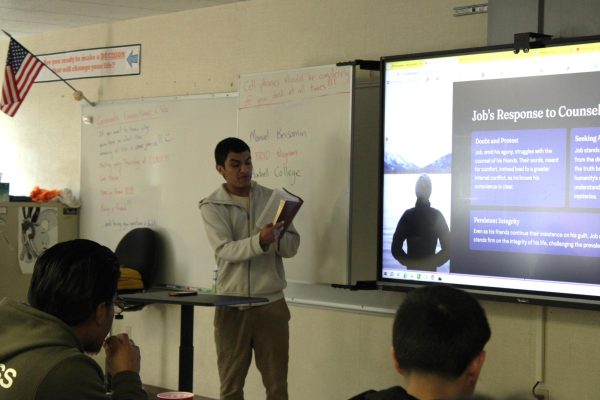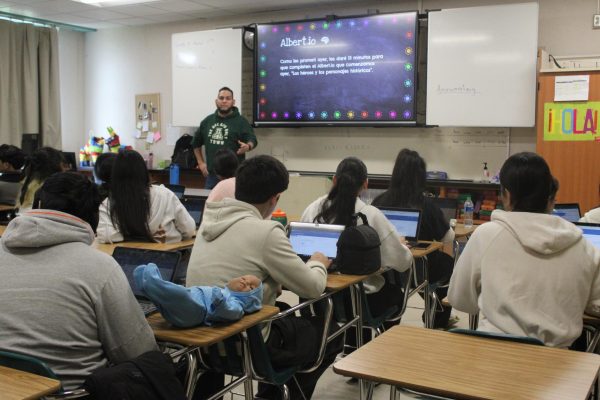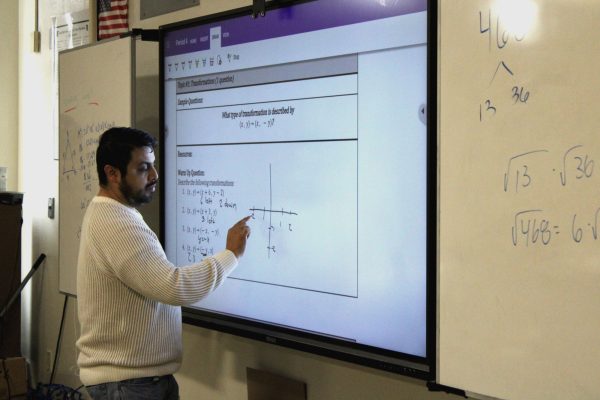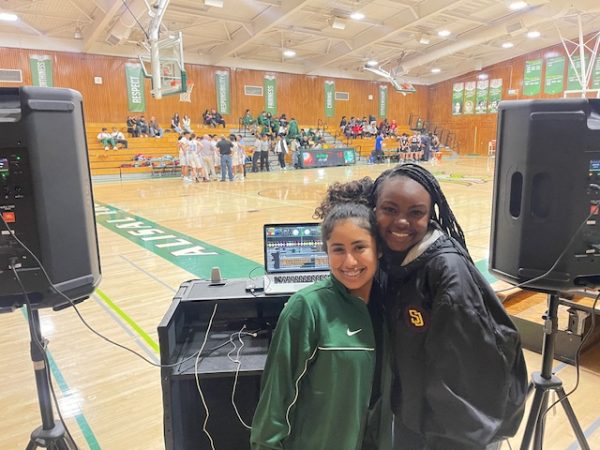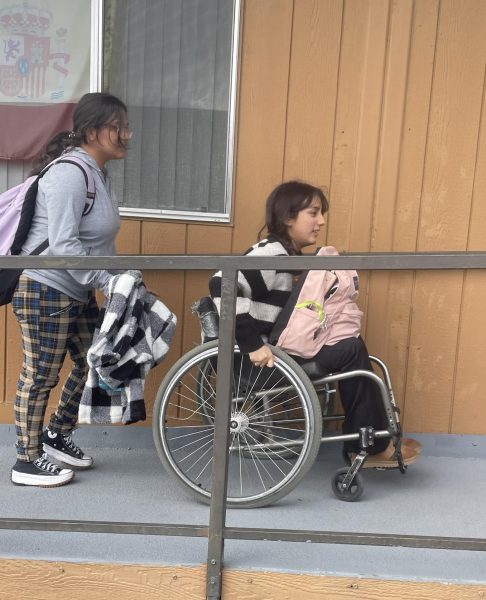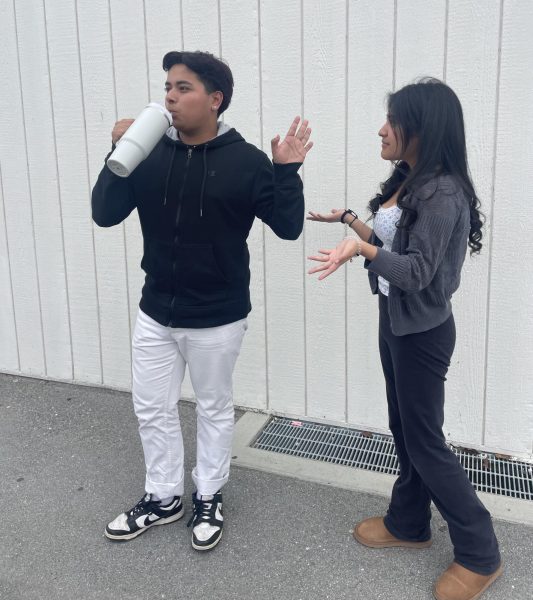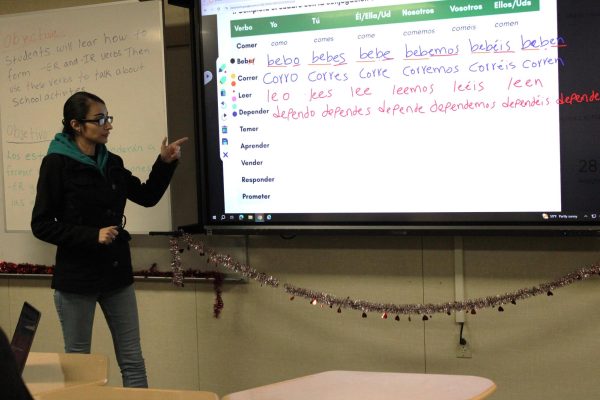Statistically speaking, why should you take AP Statistics?
A conversation with AP Statistics instructor Carola Beussen
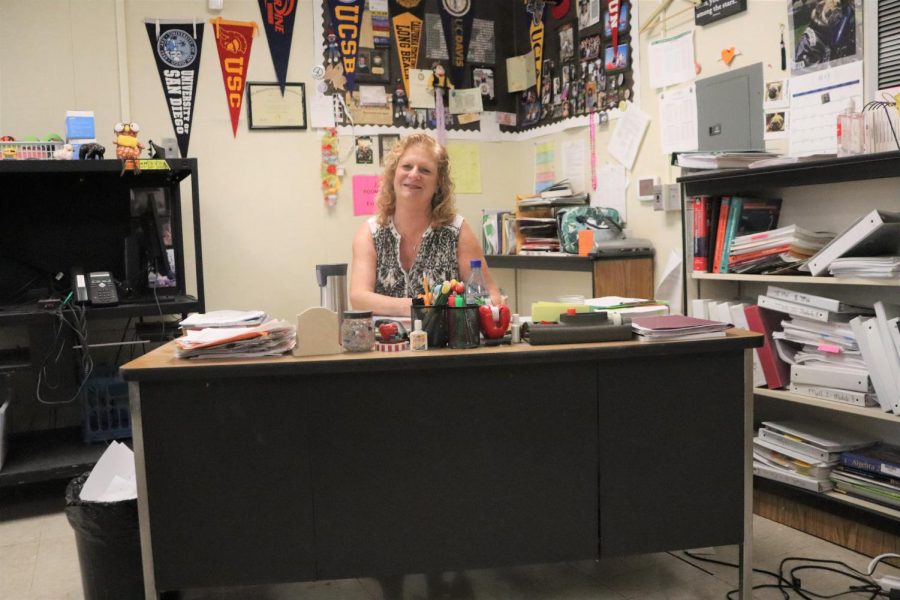
AP Statistics teacher Carola Beussen is excited for next year and the prospect of teaching two sections of the class, but she’d like to have even more.
Statistics are seen everywhere in our lives although we may never notice it. We use statistics, to compare items, measure, or to make decisions. And if you’re a sports fan, statistics are a huge part of every sport.
Statistics can help interpret the world in a different way, which has become very apparent thanks to the COVID pandemic. They have shown infection rates, vaccination rates and efficacy, as well as monitoring the economic and social status of the world.
Students at our school are taught in a systematic way – Math 1, Math 2, and Math 3 – leading them to be prepared for calculus. Although calculus is beneficial, students aren’t really introduced to the other branches of mathematics.
Carola Beussen, who has been the AP Statistics teacher for six years and has a 60% pass rate, is excited about the growth of the program and talks about the importance of statistics in both mathematics and the world we live in.
RC: Why take statistics?
Beussen: First, from the perspective of required classes when you go to college, most of the majors that students take will require statistics in general education. The first two years, one of the math classes required is statistics. So taking AP Statistics in high school and passing the AP exam will save you a couple of thousand dollars.
The other consideration is statistics is really the one math class that describes the world of numbers around us. As the last couple of years have illustrated clearly with COVID, with all the percentages we saw, with all those numbers, statistics really describes and allows us to analyze what is happening around us through numbers. This class will prepare students to view our world through a more critical lens. Recognize bias in surveys, understand how bias can influence how we read and interpret information coming to us through TV, news, social media, etc.
RC: How do you feel about having more than one AP Statistics class?
Beussen: Well, I am excited that next year we will have two sections. We have at least 40 students that signed up for statistics, which is a really good thing because the importance of statistics is received much more by students. I also know that on a district level that they are looking into a course which is data science. It is a combination of more algebra thinking in connection with data analysis in connection with statistical topics. I am not sure what the course entails, we haven’t really learned about it, but data science definitely gives me the sense, the idea that it will alter between algebra and statistics. I haven’t taken a course or training in that class, but I assume it will involve more with statistics. We will not be offering this course next year, but possibly the following year.
RC: How come there isn’t a normal statistics class instead of only AP?
Beussen: We don’t have enough students to offer the two different courses. One year I taught both of them in one group and it was impossible. I did not do my AP students any favors, I couldn’t really teach up to their levels that they were required to master. And to the other students, I lost them halfway through the year. I tried it one year and that is never going to happen again.
RC: Do you believe having multiple teachers would help with this situation? AP is intimidating for regular students.
Beussen: True, AP sounds intimidating to a lot of students and it does require more work, different attitudes by the students to be successful in an AP class. Well, apart from anything, I am the only statistics teacher here on campus. I would rather just stay and teach AP statistics, especially now that we have two complete sections than having one AP and one regular statistics. This would also require different textbooks and more resources.
RC: In the past has there been any statistics teachers or has it only been you throughout the years?
Buessen: I think as far as I am concerned, I am the only one who teaches pure statistics. I am pretty sure that at some point our school also offered one semester trigonometry and one semester statistics but, I am never ever going to buy into that course. I don’t think our students are served by a course that doesn’t go deep enough in either of the two.
RC: Where does statistics stand in the school as a class?
Beussen: It is considered an upper level math class. I don’t know if everyone looks at statistics on an equal level as calculus. That was what I have been trying to accomplish over the last years, for people to understand, yes Calculus has its benefits and it looks good in your transcript, but AP Statistics is the same way. If you pass an AP Statistics class and you do well in the class, it just looks as good in your resume. Someone who goes to college to study to become a nurse or a psychologist is more served by taking statistics class rather than a calculus class. Many students who move into the medical field will need to take calculus at a university, but that will be more of a biology approach as opposed to calculus which we teach here which is much more in physics. These are two different types of courses for calculus
RC: What misconceptions do you believe students have of statistics?
Beussen: Students are afraid to take statistics because they view the course as an extension of the algebra based math courses they have taken. However, statistics is completely different from their earlier math experience. Hardly any algebra is required in statistics, that does not mean that AP Statistics is an easy course. It presents different challenges, such as comprehensive reading, writing, and analyzing.
RC: What do you enjoy about teaching the class?
Beussen: I love that students come to me with a relatively ‘clean slate’ and leave the class prepared for the AP Exam and real life.
RC: What have students said about this class/what do they enjoy about it?
Beussen: The students say it is applicable to real life as opposed to calculus. Two students even used statistics for a debate in their history class. Because of their experience with statistics the data really led to more questions, making it harder to accept the information without knowing more about how the data was construed.
Your donation will support the student journalists of Alisal High School. Your contribution will allow us to purchase equipment and cover our annual website hosting costs.



